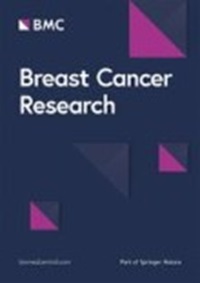关于早期雌激素受体阳性乳腺癌新辅助内分泌治疗后肿瘤反应评估方法的前瞻性研究
IF 6.1
1区 医学
Q1 ONCOLOGY
引用次数: 0
摘要
对雌激素受体阳性(ER+)/HER2-阴性(HER2-)乳腺癌进行新辅助内分泌治疗(NET)可实时评估药物疗效,并研究雌激素剥夺后发生的生物和分子变化。NET后的临床和病理评估可用于获得肿瘤对辅助治疗反应的预后和预测信息。在这种情况下,为评估新辅助化疗后的反应而开发的临床量表并不实用,而且除了Ki67水平和术前内分泌预后指数评分(mPEPI)外,还没有有效的生物标志物来评估NET的反应。在这项前瞻性研究中,我们广泛分析了104例绝经后ER+/HER2-可切除乳腺癌患者的放射学(超声扫描(USS)和磁共振成像(MRI))和病理学肿瘤反应,这些患者术前平均7个月接受NET治疗。我们定义了一个新的评分标准,即肿瘤细胞大小(TCS),计算方法是手术标本中残留的肿瘤细胞大小与肿瘤病理大小的乘积。我们的结果表明,USS和MRI对NET反应的放射学评估低估了病理肿瘤大小(path-TS)。肿瘤大小[平均值(范围);毫米]为:路径-TS 20(0-80);USS放射学-TS 9(0-31);MRI:12(0-60)。然而,他们支持使用 MRI 而非 USS 来临床评估肿瘤放射学反应(rad-TR),因为 MRI 而非 USS 的放射学反应与 Ki67 下降(分别为 p = 0.002 和 p = 0.3)和 mPEPI 评分(分别为 p = 0.002 和 p = 0.6)有显著的统计学关联。此外,鉴于TCS的简便性、可重复性及其与现有生物标志物(如ΔKi67,p = 0.001)的良好相关性和潜在附加值,我们建议TCS可成为规范NET反应评估的新工具。我们的研究结果阐明了肿瘤对NET反应的动态变化,挑战了NET能减少手术量的模式,并指出了TCS在量化通常由内分泌治疗产生的分散肿瘤反应方面的实用性。未来,这些结果应在具有相关生存数据的独立队列中得到验证。本文章由计算机程序翻译,如有差异,请以英文原文为准。
A prospective study on tumour response assessment methods after neoadjuvant endocrine therapy in early oestrogen receptor-positive breast cancer
Neoadjuvant endocrine therapy (NET) in oestrogen receptor-positive (ER+) /HER2-negative (HER2-) breast cancer allows real-time evaluation of drug efficacy as well as investigation of the biological and molecular changes that occur after estrogenic deprivation. Clinical and pathological evaluation after NET may be used to obtain prognostic and predictive information of tumour response to decide adjuvant treatment. In this setting, clinical scales developed to evaluate response after neoadjuvant chemotherapy are not useful and there are not validated biomarkers to assess response to NET beyond Ki67 levels and preoperative endocrine prognostic index score (mPEPI). In this prospective study, we extensively analysed radiological (by ultrasound scan (USS) and magnetic resonance imaging (MRI)) and pathological tumour response of 104 postmenopausal patients with ER+ /HER2- resectable breast cancer, treated with NET for a mean of 7 months prior to surgery. We defined a new score, tumour cellularity size (TCS), calculated as the product of the residual tumour cellularity in the surgical specimen and the tumour pathological size. Our results show that radiological evaluation of response to NET by both USS and MRI underestimates pathological tumour size (path-TS). Tumour size [mean (range); mm] was: path-TS 20 (0–80); radiological-TS by USS 9 (0–31); by MRI: 12 (0–60). Nevertheless, they support the use of MRI over USS to clinically assess radiological tumour response (rad-TR) due to the statistically significant association of rad-TR by MRI, but not USS, with Ki67 decrease (p = 0.002 and p = 0.3, respectively) and mPEPI score (p = 0.002 and p = 0.6, respectively). In addition, we propose that TCS could become a new tool to standardize response assessment to NET given its simplicity, reproducibility and its good correlation with existing biomarkers (such as ΔKi67, p = 0.001) and potential added value. Our findings shed light on the dynamics of tumour response to NET, challenge the paradigm of the ability of NET to decrease surgical volume and point to the utility of the TCS to quantify the scattered tumour response usually produced by endocrine therapy. In the future, these results should be validated in independent cohorts with associated survival data.
求助全文
通过发布文献求助,成功后即可免费获取论文全文。
去求助
来源期刊

Breast Cancer Research
医学-肿瘤学
自引率
0.00%
发文量
76
期刊介绍:
Breast Cancer Research is an international, peer-reviewed online journal, publishing original research, reviews, editorials and reports. Open access research articles of exceptional interest are published in all areas of biology and medicine relevant to breast cancer, including normal mammary gland biology, with special emphasis on the genetic, biochemical, and cellular basis of breast cancer. In addition to basic research, the journal publishes preclinical, translational and clinical studies with a biological basis, including Phase I and Phase II trials.
 求助内容:
求助内容: 应助结果提醒方式:
应助结果提醒方式:


